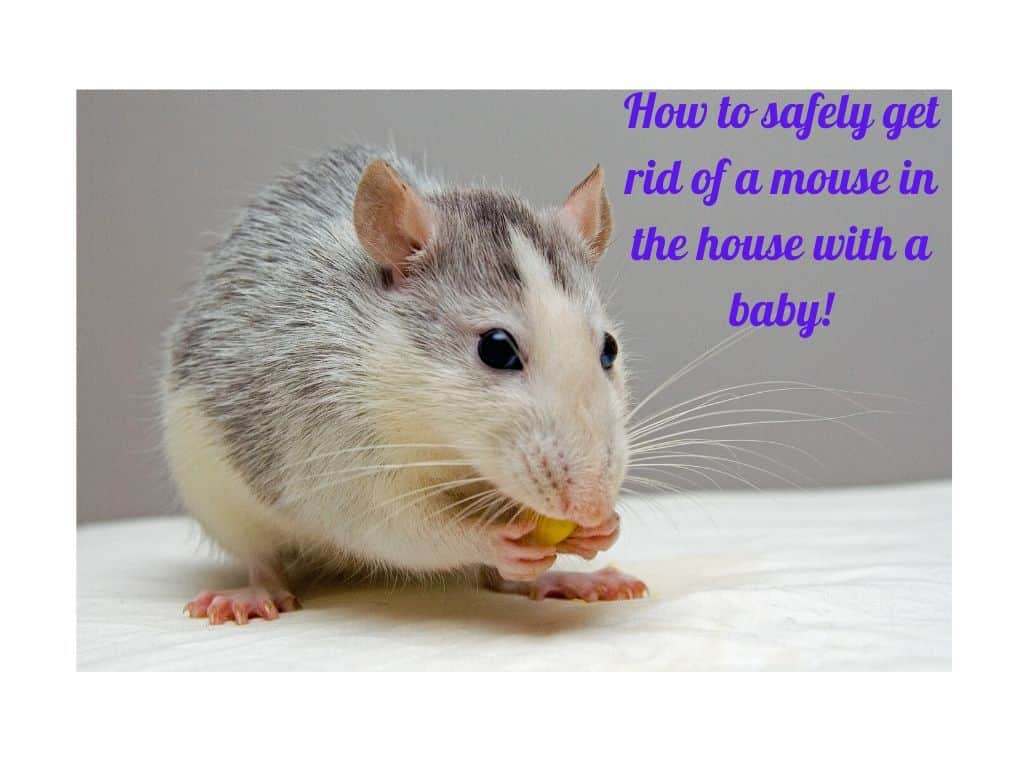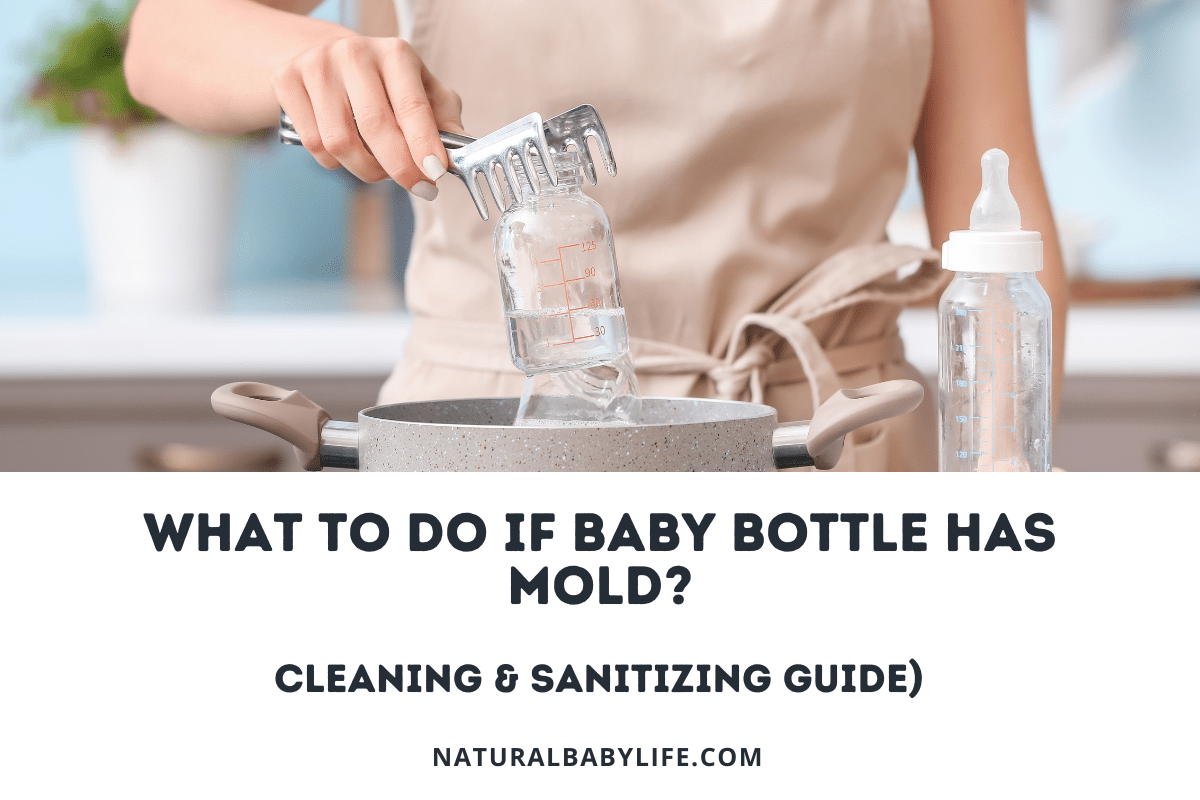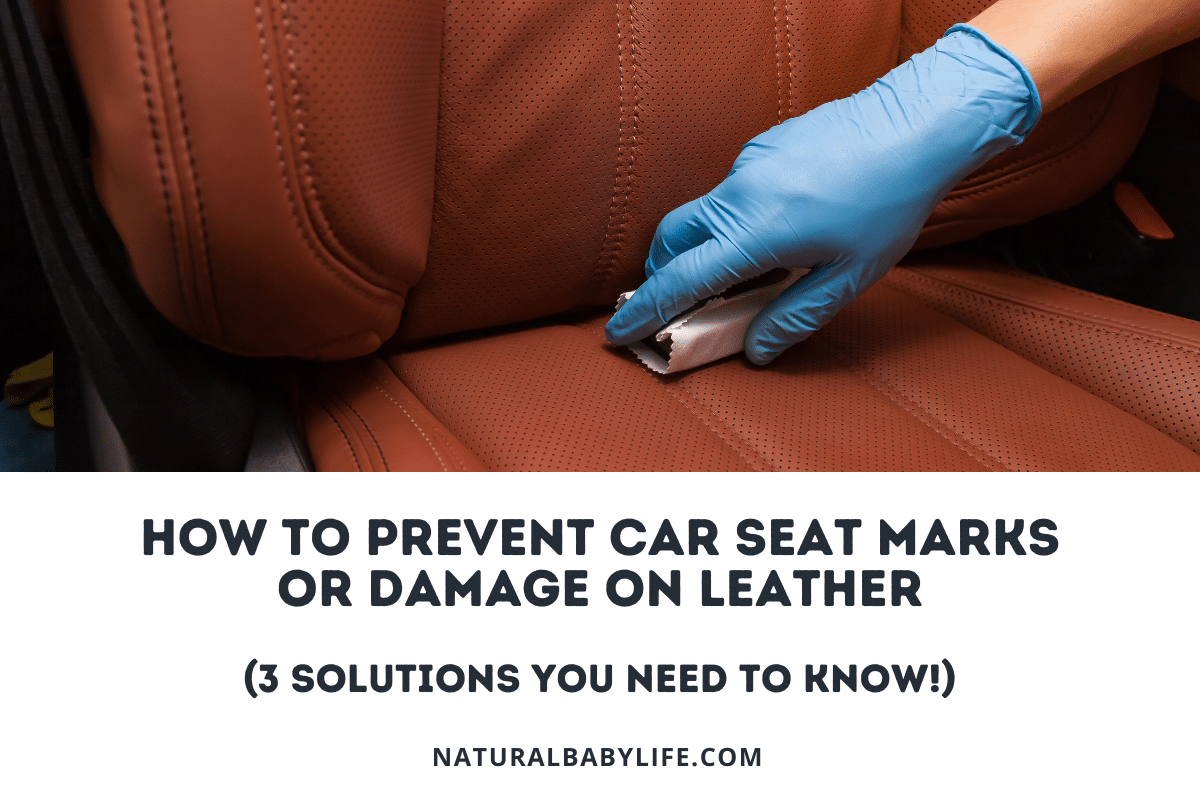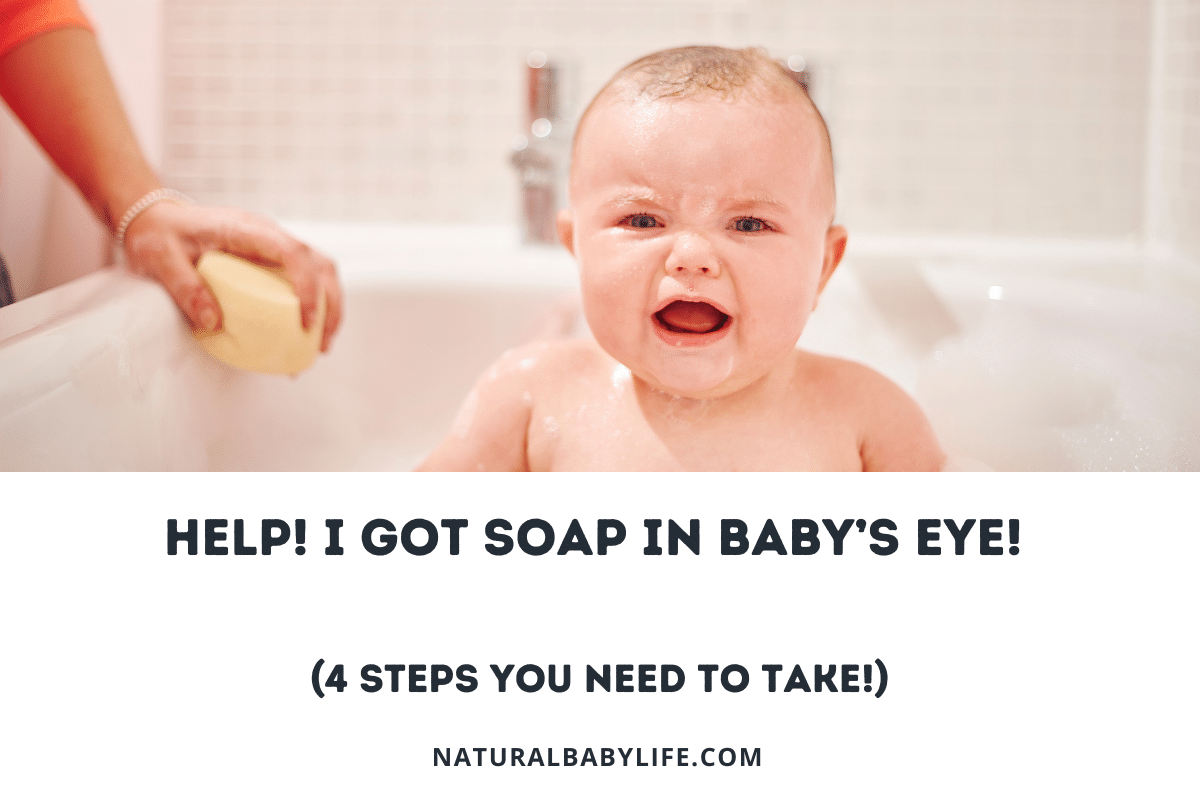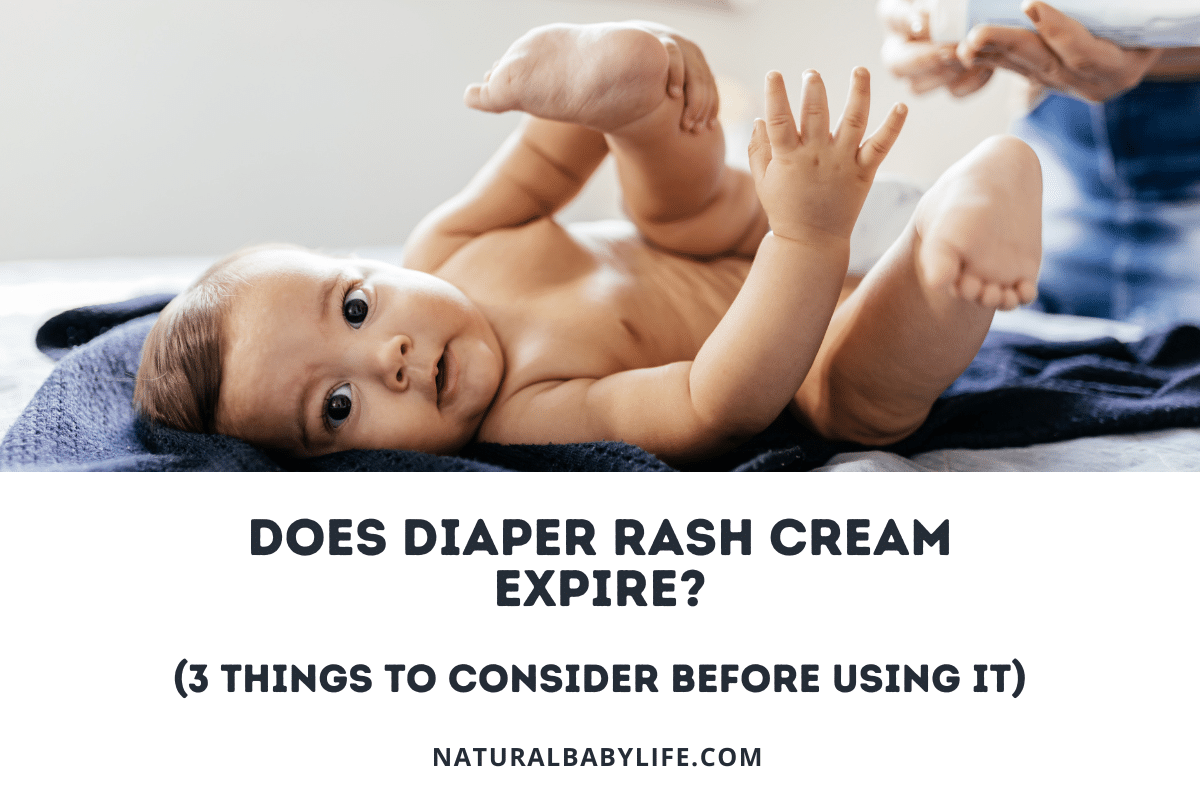Mice are generally unwelcome visitors in any home, but when you have a baby in the house, a mice infestation quickly becomes a serious issue. From the diseases they spread to the items they destroy, if you have a rodent infestation, you need to take care of it fast. The question is how do you get rid of mice without using something that might harm your child as well?
Mice are disease carriers that can be very dangerous for babies. Getting rid of a mouse while keeping your baby safe requires finding the entry location, cleaning up droppings, and using a variety of humane and non-poisonous methods to catch or repel the mouse.
Finding out you have a mice infestation is extremely worrisome when you have small children. Although poison may be the first option you think of, it may not be the safest option for your little ones. Keep reading to hear our best tips for how to kick mice out of your house for good in a way that is safe for your whole family.
Table of Contents
Are mice dangerous for babies?
As parents, we are incredibly protective of our babies and want to make sure we keep them away from anything that could potentially harm them.
Mice can be dangerous for babies for numerous reasons. They are potential carriers for a myriad of diseases from Hantavirus Pulmonary Syndrome to Salmonellosis. In the US, the only cases of Hantavirus are ones where the virus was transmitted from a rodent to a human. Their droppings are also a potential hazard that could contaminate your food.
Mice are usually pretty good at climbing, which means they could get into any of your kitchen cabinets. You don’t want to take any chances when it comes to mice climbing through your pantry.
Can mice make my baby sick?
According to the CDC, the most common virus for mice to carry is called Lymphocytic Chorio-meningitis (LCM). LCM can be contracted by humans if they breathe in dust that is contaminated by rodent droppings or from direct contact with rodents.
When there are mice in the house, there is also going to be mice urine, which could be found anywhere that the mice traveled. Mice urine could also be a cause for your baby getting sick or contracting one of the diseases that mice carry. Rodents tend to leave their droppings anywhere and everywhere, so if a mice gets into your kitchen cabinets or even your baby’s laundry, there is a potential risk of your baby getting sick.
Not only would eating contaminated food make your baby sick, but if they happen to find any mice droppings around the house, putting the droppings in their mouth could make them sick as well. Even if you’re checking carefully for droppings, since babies are the ones getting a close look at the ground, they may notice or pick up something that you didn’t see. According to the Indiana State Department of Health, a mouse will produce up to 18,000 droppings in one year.
If you don’t take care of your mice infestation right away, you may end up with a lot of droppings around your house.
Will mice bite my baby?
Many parents with a mice infestation are concerned about their baby being bitten. Although a mouse may bite if it feels threatened, it isn’t likely that a mouse would bite your baby since, generally, mice are scared of humans. Mice have very poor eyesight, but an excellent peripheral vision to detect movement; any sudden movement from your baby would usually scare a mouse away.
Rodents can spread diseases through their bite or from any direct contact, so keeping your baby away from the mice is extremely important. However, it’s not likely that your baby would receive a bite from a mouse, and rats are more likely to bite than mice are.
What if there are mouse droppings on baby clothes?
If you find mice droppings on your baby’s clothes, it’s very important to take proper precautions while cleaning the droppings. Just because the droppings may be dried, doesn’t mean they’re safe as any potential viruses can remain alive in droppings for an extended period of time.
Before cleaning any mice droppings off of clothes, or from the inside of drawers, be sure to protect yourself by wearing gloves, protective eyewear, and a mask. Since the dust particles in the air can become contaminated, it’s important to protect yourself first.
A HEPA vacuum, (or High-efficiency particulate air vacuum) is a great tool to use to clean any remnants of mice droppings off of clothes. The high-efficiency filters in the vacuum will keep any bacteria or virus particles from contaminating the air you’re breathing.
When you’re washing the contaminated clothes, the key is using the hottest water that the fabric can handle. Properly diluted bleach will also sanitize your baby’s clothes, although many parents avoid using bleach since a baby’s skin is very sensitive. Borax also has antibacterial properties, and may be a safer solution to use in place of bleach. If your washer has a sanitizing cycle, you may use that without any additives.
When cleaning out any cabinets or drawers where mice dropping were found, it’s important to use a disinfectant or a mixture of bleach and water to get rid of any bacteria.
Can mice get into cribs?
Mice are excellent climbers that can climb up to 13 inches up a wall and can jump up to a foot high. Since they’re so great at climbing, a mouse could climb into your baby’s crib. However, they are generally afraid of humans and scurry away when they see any movement.
The only reason mice would generally try to climb into your baby’s crib is if they smell any food or milk there. If you know have a mice infestation, make sure your baby’s sheets are kept clean and that you aren’t sending them to bed with a bottle. Make sure you’re checking your own bed for crumbs as well, especially if you tend to have a late-night snack in bed since mice will be attracted to any food they smell.
Do mice leave on their own?
Mice infest houses for many different reasons, but it’s unlikely that they will simply leave on their own.
They will likely find warmth, food, and comfort somewhere in your house, which doesn’t give them much of a reason to leave. If you have a mouse taking up space in your home, you have to make it uncomfortable for them to be there. Otherwise, you may have a permanent resident!
How to get rid of mice when you have a baby
If you’re trying to get rid of a mouse, most people would go straight to using poison. With little ones in the house, we have to be careful what products we use. Most people think it’s safe to use poison as long as you put it somewhere that your kids won’t get to it. The trouble with that is they get into everything!
According to Safe Rodent Control, 10,000 kids are exposed to rodent poison every year. Rodenticides are a real danger especially to children under 6 who love to explore all areas of the house and put everything they find in their mouths. Since most rodenticides are specifically designed as bait for rodents, many children mistake the colorful pellets for candy.
The first thing you need to do when getting rid of mice is to find out where they’re coming in. Mice can enter through very tiny holes, so seal up any holes you see around the house. This will also prevent any more mice from coming in while you’re trying to get rid of the ones you have.
It’s also important to remove all possible food sources for the mice by storing any pet food, grains or any other loose food in metal containers. Be sure to wipe up all crumbs and clean any dirty dishes you have during this process.
How to get rid of mice naturally
Even though we want to avoid poison, there are still lots of things you can do that are much safer to try with a baby in the house.
- Use an electronic rodent repeller – There are devices that emit high-frequency waves that irritate mice. Fortunately, these high-frequency waves can’t be heard by humans. To make the best use of these repellers, it’s best to buy several of them and set them up at different locations around your house. Keep in mind that reviews on this type of repellant are always mixed. Some people report great results and others say they are worse than useless.
- Try a humane trap – If you don’t like the idea of killing the mouse, or simply want to make your small children or pets don’t get hurt, a humane trap can help you catch the mice without harming them. Humane traps such as this Smart Mouse Trap are safe around children and pets. If you do catch any mice, be sure to release them at least a mile away from your house so they don’t immediately return.
- Call a professional – Your number one priority is keeping your little ones safe. It’s possible to catch mice in your house on your own, but if you don’t have the time or ability to do so, you don’t want to wait any longer than necessary. Calling a professional is a great way to quickly get rid of a mice infestation if you’re not able to, but be sure to talk with the exterminator about which methods they plan to use for removal including any chemicals they might want to use.
Does having mice mean your house is dirty?
Many people wonder if a mice infestation means their house is dirty, but this is not necessarily the case.
Most mice enter houses looking for warmth, so the fact that you may have cheerios on your living room floor is just a bonus for the mice. As parents we know it’s difficult to keep our houses clean for more than a few minutes, but be assured that mice come in for a lot of different reasons, and if you have an infestation, it’s not necessarily an indicator that your house is too dirty.
Keeping mice away from the house
Once you’ve gotten rid of the mice in your house, it’s important to make sure they won’t be back! Here’s a list of ways to keep mice away for good.
- Plug up any holes with steel wool – Mice can’t chew through the steel wool and it actually irritates their teeth.
- Shut doors tightly – Making sure you don’t leave any doors open for an extended period of time will prevent some mice from sneaking in.
- Proper food storage – Our houses may always be a little messy with children running around, but keeping food in the kitchen properly stored may prevent mice from trying to come in.
- Peppermint oil, cayenne pepper, and cloves – Soaking some cotton balls in oils with one or more of these scents can keep mice away.
Good luck with the mouse and keep that baby safe!

